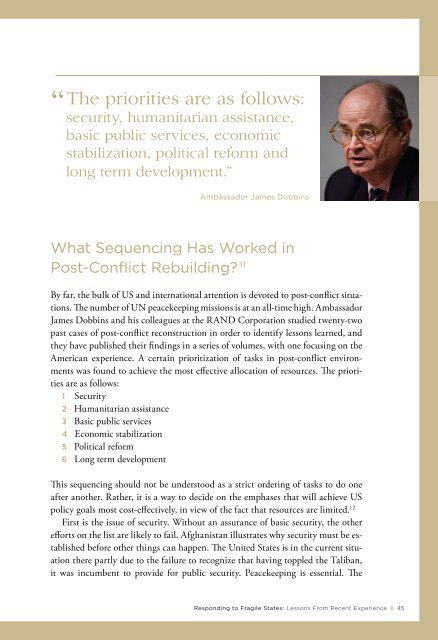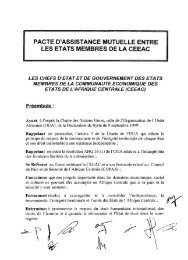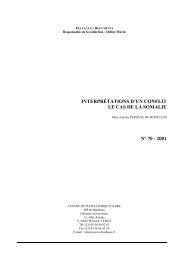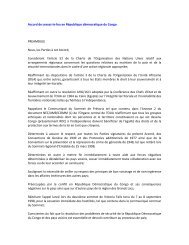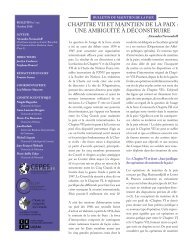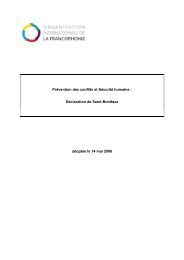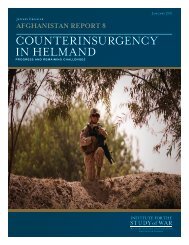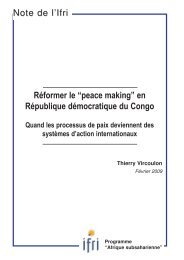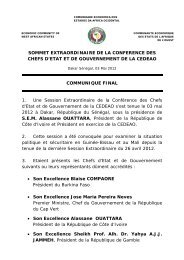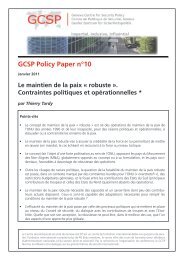engaging fragile states - Woodrow Wilson International Center for ...
engaging fragile states - Woodrow Wilson International Center for ...
engaging fragile states - Woodrow Wilson International Center for ...
You also want an ePaper? Increase the reach of your titles
YUMPU automatically turns print PDFs into web optimized ePapers that Google loves.
“<br />
The priorities are as follows:<br />
security, humanitarian assistance,<br />
basic public services, economic<br />
stabilization, political re<strong>for</strong>m and<br />
long term development.”<br />
Ambassador James Dobbins<br />
What Sequencing Has Worked in<br />
Post-Conflict Rebuilding? 11<br />
By far, the bulk of US and international attention is devoted to post-conflict situations.<br />
The number of UN peacekeeping missions is at an all-time high. Ambassador<br />
James Dobbins and his colleagues at the RAND Corporation studied twenty-two<br />
past cases of post-conflict reconstruction in order to identify lessons learned, and<br />
they have published their findings in a series of volumes, with one focusing on the<br />
American experience. A certain prioritization of tasks in post-conflict environments<br />
was found to achieve the most effective allocation of resources. The priorities<br />
are as follows:<br />
1 Security<br />
2 Humanitarian assistance<br />
3 Basic public services<br />
4 Economic stabilization<br />
5 Political re<strong>for</strong>m<br />
6 Long term development<br />
This sequencing should not be understood as a strict ordering of tasks to do one<br />
after another. Rather, it is a way to decide on the emphases that will achieve US<br />
policy goals most cost-effectively, in view of the fact that resources are limited. 12<br />
First is the issue of security. Without an assurance of basic security, the other<br />
ef<strong>for</strong>ts on the list are likely to fail. Afghanistan illustrates why security must be established<br />
be<strong>for</strong>e other things can happen. The United States is in the current situation<br />
there partly due to the failure to recognize that having toppled the Taliban,<br />
it was incumbent to provide <strong>for</strong> public security. Peacekeeping is essential. The<br />
Responding to Fragile States: Lessons From Recent Experience | 45


